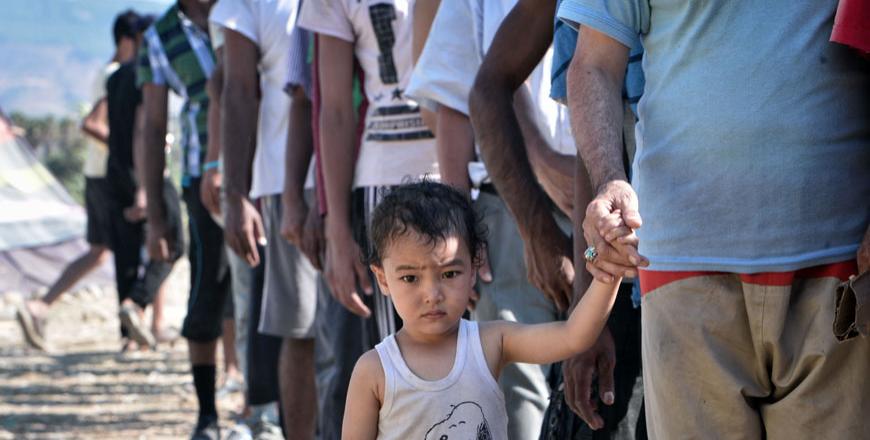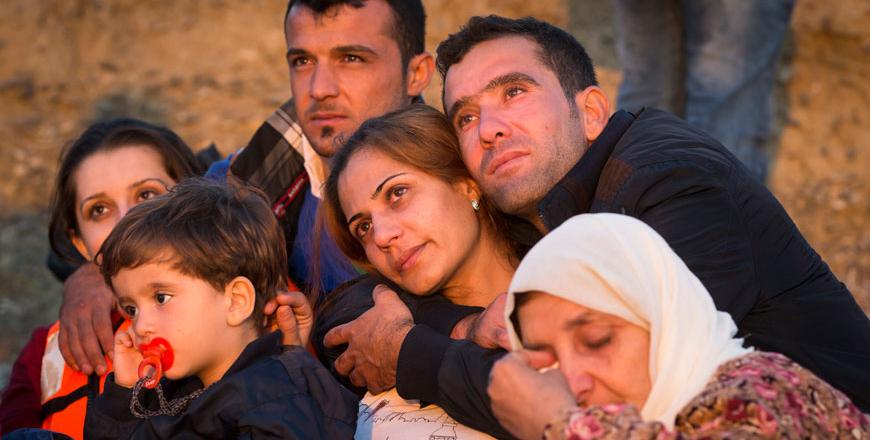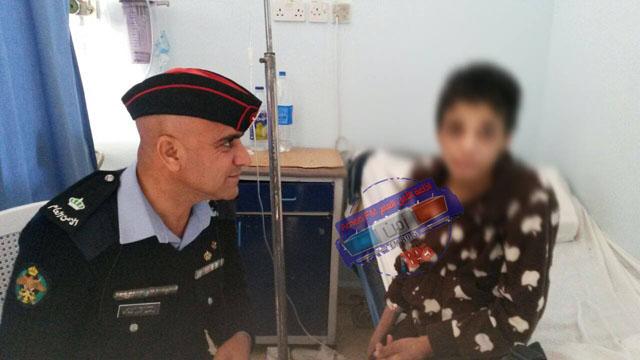You are here
Syrians risk lives to reach Europe ‘for their children’
By AFP - Aug 18,2015 - Last updated at Aug 18,2015

Migrants queue during a food distribution organised by the local organisation ‘Kos solidarity’ outside the abandoned Captain Elias Hotel, where hundreds of migrants have found temporary shelter, on Monday (AFP photo)
KOS, Greece — Five nights ago, Nada and her children braved a perilous journey in an inflatable dinghy to the Greek island of Kos less than a month after fleeing the devastated Syrian city of Aleppo.
"Had it not been for the girls, I would have never taken that boat," said Nada as she watched her three daughters — all under nine — play on the beach of the resort island.
"We risked everything so they can have a future," she said.
Nada's family are among more than 135,000 people fleeing war and poverty who have arrived in Greece by sea this year, in an unprecedented influx that Europe is struggling to deal with.
The shambolic response of the Greek authorities on Kos has become grimly symbolic of the European Union's lack of action in the face of the humanitarian crisis, with pitiful scenes last week as thousands of migrants were gathered by police in a sports stadium on the island without enough food or water.
Nada and her husband not happy about sleeping in a tent while they prepare to go to Athens and onward to northern Europe, but they are glad their girls have escaped war-ravaged Syria.
"They still cry and scream in fear every time they hear a loud noise, thinking it could be shelling," said Nada, who wore a pink T-shirt and a lilac-coloured veil.
"But they've got their laughter back, and they're playing again. At least the war and bombings are behind us now," she added.
Her shy, brown-haired daughter Nisreen says she wants to be a doctor when she grows up.
Vian, who is a little more talkative, wants to learn ballet.
"I want their dreams to come true. In Syria, they never would have," said Nada, who is 33.
A child's nightmares
For now, however, Vian only remembers her nightmares.
"I dreamt one night, when we were still in Aleppo, that the army came into the house and kidnapped us," said Vian, who is eight years old.
"I haven't had any dreams since then," the child added.
It will take a long time for children like Vian and her sisters to find any real sense of stability and normality again, says international charity Save the Children.
"Children are very resilient and with the right care they can bounce back," Save the Children spokeswoman Sarah Tyler told AFP.
"But it could be months before [they] see a change for the better," Tyler added.
Many of the children fleeing Syria have been out of school for several years. Many have started acting older than they really are to support their struggling parents, losing out on their childhood.
"Children need a sense of normalcy now," Tyler said, explaining that they need safe places to play and schools to go to.
"They also need psychosocial support to feel normal again," she added, warning that some children have become aggressive while others simply have no way to communicate their feelings.
But with their families still on the move and amid a dearth of government assistance in Greece, migrant and refugee children have only received a few toys, colouring books and pencils handed out by a handful of kind tourists and locals.
'War is in their blood'
Nisreen, 34, who also came to Kos from Aleppo through Turkey with her husband and her two children, said the war has had a huge psychological impact on her little boys.
"The war is in their blood now. They have become savages," said Nisreen, who wears her light brown hair short.
"I came to Europe for them. I had to get them out of Syria, the war was destroying them. They are only four and six, but all they want to play is war games," she said, adding that they fight each other with spoons and pencils, mimicking the sounds of gunfire and explosions.
"They are very aggressive and difficult. And whenever they don't hear shelling, they ask me 'Mama, why is there no shelling?'"
All Nisreen wants now is "stability".
"We haven't been able to sleep properly for three years, since the war came to Aleppo. I want my children to be able to relax, play and go to school like all children should," she said.
"I need to feel safe too, so I can give them what they need. For now, they cry themselves to sleep most of the time," she added.
The UN refugee agency says half of the four million people who have fled Syria's war are minors.
"These are the most vulnerable because they are the most sensitive, and they have to receive the appropriate protection," UNHCR spokeswoman Stella Nanou told AFP.
No one knows how many of those arriving in Greece are children, but many are. And every night more arrive.
Related Articles
KOS, Greece — Michel Allatuain waited beneath the 14th century fortress at the port of this Greek island on Thursday, desperate for a ferry
KOS, Greece — When the Daesh terror group took over their Iraqi city and burned down the family's home, two teenaged brothers decided to ris
Nisreen, a 20-year-old woman with a mental disability, spent the past 15 years chained to the staircase in her family’s house, except at bedtime.


















